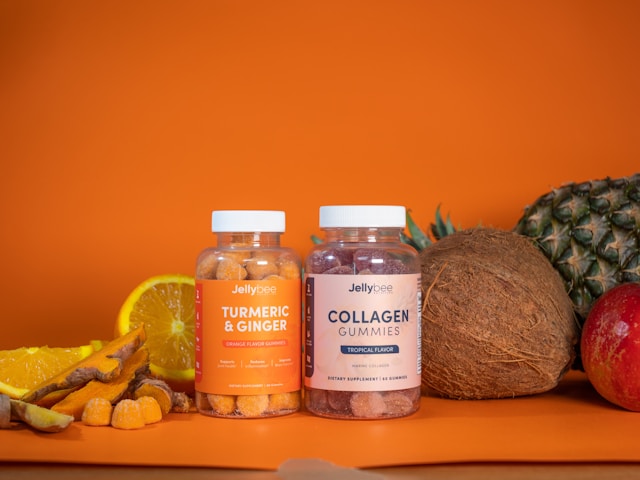10 Shocking Truths About Supplements That Should Change Your Mind
3 minute readPublished by BNN

The supplement industry is filled with unregulated products, weak evidence, and questionable marketing tactics. Here's why many experts believe you should be cautious.
The global supplement industry is booming, with flashy marketing and bold health claims flooding social media and wellness blogs. From NAD+ boosters promising cellular rejuvenation, to collagen supplements claiming to restore youth, and ATP-enhancing formulas touting improved energy and metabolism, today’s products are dressed in the language of science. But beneath the polished labels lies an industry riddled with questionable practices, weak evidence, and minimal oversight. Despite their popularity, most people taking vitamins, NAD supplements, collagen, and energy-boosting pills see little to no real benefit—aside from a lighter wallet. In this article, we explore 10 compelling reasons why many experts consider supplements to be a scam—or, at best, a misinformed shortcut.
1. Lack of Regulation
Dietary supplements in the U.S. are regulated as food, not drugs, under DSHEA (1994), meaning manufacturers don’t need to prove safety or efficacy before going to market (source). The FDA only acts after adverse events emerge, inspect facilities selectively, and doesn’t routinely verify product contents (source). This hands-off system allows companies to sell products with little oversight, putting consumer health at risk.
Result: Companies can sell products with unproven or exaggerated claims.
2. Dubious Health Claims
Commercial claims like “immune booster” or “detoxifier” are often vague marketing terms, not backed by human trials (source). While firms can make structure-function claims, disease-treatment claims are illegal without drug-level approval (source). Still, many products use cherry-picked, low-quality studies to mislead consumers into believing their benefits are scientific.
Result: Marketing often preys on fears, insecurities, or false hope.
3. Low-Quality Ingredients & Mislabeling
Independent testing reveals that many supplements don’t contain what they claim—some have far more or far fewer active ingredients (source). Contaminants like heavy metals, pesticides, and undeclared pharmaceuticals are also found in products. For example, the GAO reported 92% of tested herbal supplements contained lead, and 80% other contaminants, posing serious health risks (source).
Result: You're often paying for something that's either weak, adulterated, or entirely bogus.
4. No Proven Benefit for Most People
Large trials like the SELECT study showed no prostate cancer prevention benefit from high-dose selenium and vitamin E, with vitamin E possibly increasing risk (source). Systematic reviews find that multivitamins and omega-3s often yield no appreciable benefit in otherwise healthy adults (source). Experts warn that supplements are no substitute for a balanced diet and lifestyle (source).
Result: You're essentially producing "expensive urine."
5. Placebo Effect Drives Sales
Studies in sports science show athletes can experience performance boosts purely due to belief, even when given inert placebos (source). This unconscious conditioning mimics real supplement effects, tricking users into believing they're effective. Such psychological influence perpetuates ongoing use, despite no pharmacological basis.
Result: Perception over proof = Psychological influence rather than actual efficacy.
6. Mega-Dosing Risks
Supplements often offer extremely high doses—e.g., vitamin D supplements may exceed 12,500% of the daily value. Overdose of fat-soluble vitamins (A, D, E, K) can be toxic, causing organ damage or serious side effects. In one case, a person taking over 20 supplements daily experienced liver damage and worsened health (source).
Result: More is not better—and can be harmful.
7. Fake or Manipulated Studies
Supplement marketers sometimes cite small-scale or poor-quality studies, or even outdated animal research, to support bold claims. Universities caution that many trials lack placebo controls or large sample sizes, making results unreliable. The absence of rigorous clinical trials undermines the credibility of many marketed benefits.
Result: Selective studies with biased findings or small sample sizes creates the illusion of scientific validation.
8. Celebrity and Influencer Endorsements
Supplements are heavily marketed via influencers and celebrities, not qualified health professionals. While they may profit from sales, they often lack medical expertise, swaying consumers with charisma rather than evidence. Notably, even medical doctors like Dr. Oz have faced criticism for promoting supplements without disclosing conflicts of interest (source).
Result: Marketing > Evidence.
9. Profit-Driven Industry
The global supplement market was valued at $152 billion in 2021, with projections to double by 2028 (source). This high-profit, low-regulation model incentivizes companies to prioritize sales over public health. Reports indicate 23,000 annual ER visits linked to supplement use in the U.S. alone (source).
Result: Profit > Public Health.
10. False Sense of Health
Relying on supplements can foster a misleading belief that pills are enough, leading to neglect of diet, exercise, sleep, and stress management. Experts stress that supplements should be used only when medically indicated, not as a shortcut to wellness. In reality, there’s no magic pill for a healthy lifestyle.
Result: Pills don’t fix poor habits.
Final Thoughts
While dietary supplements may have a legitimate role—like B12 for vegans or iron for deficiency—the industry is marred by minimal regulation, adulteration, unsubstantiated claims, and profit motives. Responsible consumers should rely on whole foods first, consult healthcare professionals, and be skeptical of bold marketing claims.